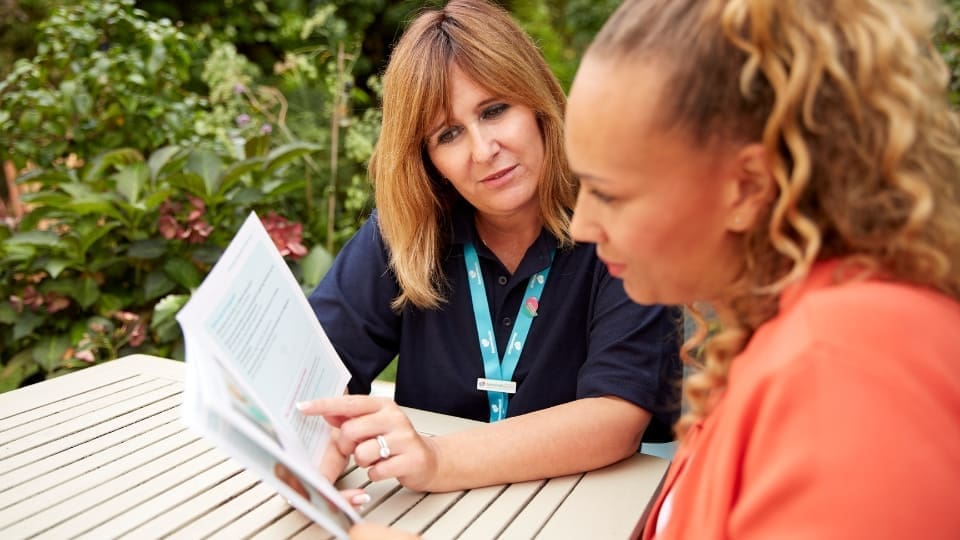Too often families are left facing dementia alone, or with very limited access to support and information. We believe this is unjust but it’s a problem that we can solve together.
Frequently GPs and other health services are overworked and under-resourced, and as a result unable to adequately help with many of the challenges faced by families. The Covid-19 pandemic has also shown the fragility of current health and social care systems. Our research report Facing it alone: experiences of dementia support shows how families and professionals have coped.
Only together can we ensure that people affected by dementia have access to the tailored information and specialist support they need, when they need it, by working in partnership between health professionals and families affected by dementia.
Reports
Reports
Download this resource
Thanks for downloading! We’re only asking for your email so we can measure downloads and ask for your feedback. We won’t sign you up for any marketing communications, but if you'd like to stay in touch, sign up for our newsletter by clicking "Subscribe to our newsletter" at the bottom of this page.
Only together – our vision and next steps for specialist dementia services
People affected by dementia should be able to receive the information and specialist support they need, when they need it
To achieve that vision, we have two key recommendations for specialist dementia care:
- Tailored information – information needs to be tailored to individuals’ needs in terms of quantity, detail and timing for when it is given
- Single clinical point of contact– families affected by dementia should have a clinically trained professional as their single point of contact
To make these two recommendations a reality, we want to work with GPs, other health and social care professionals, and families affected by dementia. Below, you can find out how you can help, as well as read about what action we’ll be taking.
- Share with us your examples of good practice supporting families affected by dementia
- Share best practice on dementia in primary care across your GP networks. Dementia UK is engaging with GP leaders across the UK to build up case studies and share best practice examples across primary care
- Proactively provide our resources and information leaflets to patients and families via virtual appointments, or at your surgery, memory clinic, or other health service.
- Ensure you are familiar with local relevant support services or charities for people affected by dementia or can signpost your patients and their families to them. Our free Admiral Nurse Dementia Helpline on 0800 888 6678 or helpline@dementiauk.org can help, as can the online Alzheimer’s Society’s Dementia Directory
- Ensure you, or the responsible staff member, are providing regular reviews – at a minimum, an annual review of the patient’s condition and care, and the support needed by the family
- Work with Dementia UK to identify how we could improve support for your patients and their families – we are here to help and work with you, so talk to us about the support we can offer
- Share your experiences of good or bad support at or after a dementia diagnosis with us
- If you are concerned about the quality or availability of support locally, take action now.
- Write to your local MP to ask them to raise these issues with local commissioners or health leads.
- Write to your Clinical Commissioning Group (CCG or local healthcare provider if you live in Scotland, Wales or Northern Ireland) or local healthcare provider which makes decisions about healthcare provision over a local area.
- If you do get in touch with your MP or CCG, please let us know.
We will provide our new and existing information resources to any local GP surgery, memory service, or other service supporting people affected by dementia
We will provide these digitally as well as printed copies if needed (although for larger orders we may ask you to cover the costs for printing and postage)
As part of our campaign, we have published a set of new and existing information resources based on the issues raised by families, GPs and Admiral Nurses in our research. These include:
- Getting a diagnosis of dementia
- Emotional impact of a diagnosis
- Practical guide for getting the best out of GP and other health appointments
- Next steps checklist
- Getting the most out of a remote consultation
- Staying healthy
- Changing relationships and roles
We will work with local services to help them improve the support they can offer and provide better coordinated care
Depending on the capacity of our national and local Admiral Nurses, we can support GP surgeries or other services to provide life-changing care for people living with dementia. We would be happy to work with local providers to develop Admiral Nurse services in primary care settings.
In line with our 2020-2025 Strategy, over the next five years we will provide new Admiral Nurse services and clinics so more families can have access to their support. This will lead to an increase in Admiral Nurses in hospitals, but also build our Admiral Nurse presence in GP practices or wider primary care networks, so that they can better support families affected by dementia wherever they need it.
We will continue campaigning for better support and funding from government
We will push for improvements not only to clinical provision and support for families, but also specialist support, care and treatment for all forms of dementia, as well as challenging issues around continuing healthcare funding
Contact us at campaigns@dementiauk.org to request our resources, local support from our Admiral Nurses or for more information on our work and campaigns.

